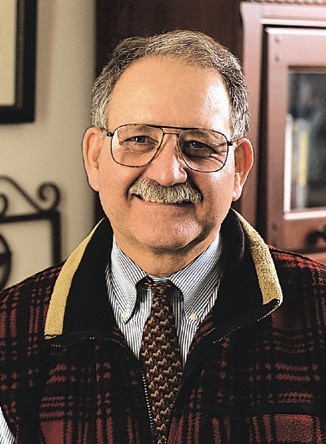Major Market Approval and the Syngenta China Corn Class Action
Sponsored by the Agricultural and Food Law Consortium

 Topic:
Topic:
On September 26, 2016, in In Re: Syngenta AG MIR162 Corn Litigation, Case No: 14-md-2591-JWL—JPO, the United States District Court for the District of Kansas granted class certification to a nationwide class of corn farmers and a class of farmers in eight states (Arkansas, Illinois, Iowa, Kansas, Missouri, Nebraska, Ohio, and South Dakota). Court documents state that the cases involve allegations of “Syngenta defendants’ decision to commercialize corn seeds containing a genetically modified trait, known as ‘MIR 162,’ that reportedly controls certain insects. Corn with this trait has entered U.S. corn stocks but has not been approved for import by the Chinese government, which has imposed a complete ban on U.S. corn with this trait. . . . Plaintiffs are corn growers and a grain exporter who suffered economic losses resulting from China’s refusal to accept MIR162 corn. All actions involve common factual questions regarding Syngenta’s decision to commercialize the MIR162 genetically modified corn trait in the absence of Chinese approval to import corn with that trait.”
Legal issues presented in In Re: Syngenta AG MIR162 include claims of negligence, tortious interference, and consumer fraud. This webinar will provide background on the litigation and discuss legal standards associated with the issues presented.
Participation:
This webinar was recorded on January 19, 2017. To listen to a recording of the webinar, please click here.
Presenter:
Thomas Redick, Global Environmental Ethics Counsel, LLC
Mr. Redick is the principal attorney in Global Environmental Ethics Counsel, LLC a solo law practice based in St. Louis, MO. He assists clients in the high-technology and agricultural biotechnology industry sectors with issues relating to sustainability standards, regulatory approval, liability avoidance and compliance with complex regulatory frameworks including the Cartagena Protocol on Biosafety and the Basel Convention on Hazardous Waste. Before establishing a solo international environmental consulting practice in 2005, Mr. Redick was a partner with Gallop, Johnson & Neuman L.C. in St. Louis, Missouri. He served as the 40th President of the Council for Agricultural Science & Technolog and is the author of several books on agricultural biotechnology and liability prevention, including Thwarting Consumer Choice: The Case against Mandatory Labeling for Genetically Modified Foods. He is the liaison for the American Bar Association’s Section on Environment, Energy & Resources to the American Agricultural Law Association (AALA) and also serves on AALA’s program and membership committees. He has served as chair of the Agricultural Management committee and currently serves as a Council member of SEER.
Drew Kershen, University of Oklahoma, College of Law Earl Sneed Centennial Professor of Law (Emeritus)
Professor Kershen taught at the University of Oklahoma from January 1971 to June 2012. He is admitted to the Oklahoma Bar and the Bar of the United States Court for the Western District of Oklahoma.
Professor Kershen is a member of the American Agricultural Law Association [Board of Directors for 1988-90; President-Elect, 1995; President, 1996; Immediate Past-President, 1997], the American Bar Association [the Subcommittee on Agri-Business and Agricultural Finance], and a life-member of the Council on Agricultural Science and Technology (CAST). He was a Director of the Rocky Mountain Mineral Law Foundation [1990-96]. Professor Kershen was the Co-Reporter to the Uniform Law Commission/American Law Institute Drafting Committee on Article 7 that redrafted UCC Article 7 Documents of Title (i.e. warehouse receipts and bills of lading). Revised Article 7 became part of the Uniform Commercial Code in October 2003.
Professor Kershen concentrated his teaching, research and writing in the areas of agricultural law (with a particular emphasis on agricultural commercial law, agricultural environmental law, and agricultural biotechnology) and water law. His work is part of the Natural Resources curriculum at the OU College of Law. He published more than thirty articles, two books, and four book chapters on agricultural law topics. He is a frequent lecturer on topics related to agricultural law and water law.
In the past twenty years, Professor Kershen has focused his teaching, writing, and speaking on agricultural biotechnology law and policy issues. He has written extensively on legal liability, intellectual property, international trade, agricultural development, and regulatory issues in agricultural biotechnology. He has been a speaker on agricultural biotechnology in Canada, Costa Rica, Guatemala, the Holy See, Honduras, Italy, India, Israel, Malaysia, Spain, and the United States.. He is also a member of the Public Research Regulation Initiative, a public service organization, through which he has participated in international negotiations concerning agricultural biotechnology. A co-authored article – N. Fedoroff & D. Kershen, Agricultural Biotechnology – An Opportunity to Feed a World of Ten Billion, 118 Penn State L. Rev. 859-875 (2014) – won the 2015 award for Professional Scholarship from the American Agricultural Law Association..